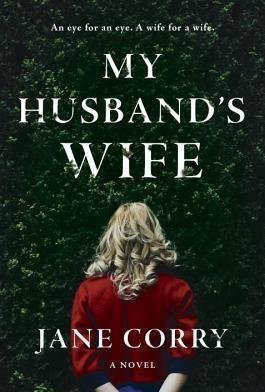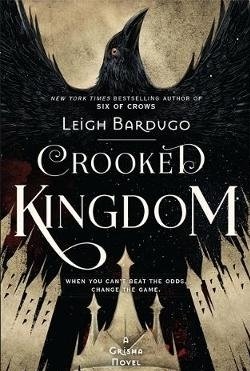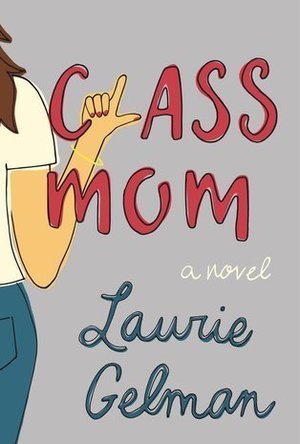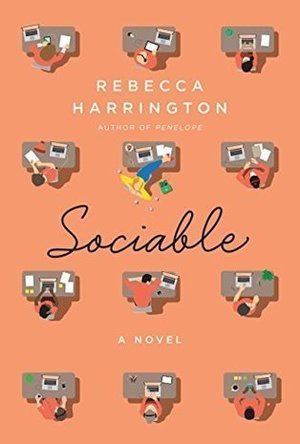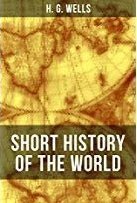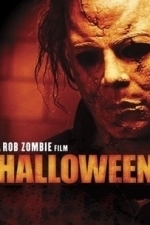Search
Search results

Kitesurf wind forecast
Weather
App
Join more than 50.000 Vaavud users. Get a quick, precise and intuitive answer to the question: When...
Movie Metropolis (309 KP) rated Pixels (2015) in Movies
Jun 11, 2019
Where's the off switch
When was the last time you went to the cinema to see something original? It’s probably a question a lot of film fans ask themselves and in the last few years, perhaps proved rather difficult to answer.
However, with 2015 being the year of the reboot and the sequel, it’s nice to see a film like Pixels showcasing something completely different. But is it worth a go?
Directed by Chris Columbus of Mrs. Doubtfire and Harry Potter fame, Pixels stars Adam Sandler, Josh Gad, Peter Dinklage and a woefully miscast Kevin James in a film that doesn’t do enough with its fascinating premise, descending into painfully unfunny slapstick instead.
Sandler stars as Sam Brenner, a video game lover who, after a brief scene showing his history, is tasked with saving the world as aliens infiltrate Earth and begin to attack using some of our most-loved classic arcade games.
Alongside him for the ride are fellow video-game champs Josh Gad (Frozen), Peter Dinklage (X:Men – Days of Future Past) and Kevin James (Paul Blart: Mall Cop). The latter also happens to play the US President.
Unfortunately, none of the cast are particularly likeable with the usually on-point James playing one of the worst Presidential roles ever put to film. He is simply unbelievable as the leader of the United States and provides Pixels with some of its more cringe-worthy moments.
Once the film gets going, there are a few standout moments including a Pac-Man rampage through New York City but this has been so heavily marketed in the trailers that there is practically no suspense or joy in watching it unfold.
The finale is also very good, with a Donkey Kong showdown rendered in some stunning CGI and ridiculously clever set building and it’s great fun seeing so many classic arcade games being brought to life on the big screen.
Pac-Man, Q*Bert , Centipede and Donkey Kong are just a few to appear and look glorious with their 21st Century upgrades. Q*Bert in particular is a little cutie and is a major character throughout the last third of the film.
It’s unfortunate then that Chris Columbus’ usually reliable direction takes such a knock here. There’s none of the clever generation-bending humour of Mrs. Doubtfire or the laugh-out-loud slapstick of Home Alone, and the visual style he brought to Harry Potter is nowhere to be seen. In the end, Pixels just comes across as a brilliant concept that seems wasted.
Perhaps this can be blamed somewhat on poor casting choices. Adam Sandler hasn’t been hot property for a while after numerous box-office bombs and Peter Dinklage is still establishing himself as a major movie star. With Kevin James also proving a disappointment, it’s only Josh Gad who comes out on top – just.
Ultimately, Pixels is fun while it lasts and has some absolutely brilliant set pieces but once the credits roll, it’s apparent that it won’t be memorable like the wonderful arcade games it parodies.
https://moviemetropolis.net/2015/08/16/wheres-the-start-button-pixels-review/
However, with 2015 being the year of the reboot and the sequel, it’s nice to see a film like Pixels showcasing something completely different. But is it worth a go?
Directed by Chris Columbus of Mrs. Doubtfire and Harry Potter fame, Pixels stars Adam Sandler, Josh Gad, Peter Dinklage and a woefully miscast Kevin James in a film that doesn’t do enough with its fascinating premise, descending into painfully unfunny slapstick instead.
Sandler stars as Sam Brenner, a video game lover who, after a brief scene showing his history, is tasked with saving the world as aliens infiltrate Earth and begin to attack using some of our most-loved classic arcade games.
Alongside him for the ride are fellow video-game champs Josh Gad (Frozen), Peter Dinklage (X:Men – Days of Future Past) and Kevin James (Paul Blart: Mall Cop). The latter also happens to play the US President.
Unfortunately, none of the cast are particularly likeable with the usually on-point James playing one of the worst Presidential roles ever put to film. He is simply unbelievable as the leader of the United States and provides Pixels with some of its more cringe-worthy moments.
Once the film gets going, there are a few standout moments including a Pac-Man rampage through New York City but this has been so heavily marketed in the trailers that there is practically no suspense or joy in watching it unfold.
The finale is also very good, with a Donkey Kong showdown rendered in some stunning CGI and ridiculously clever set building and it’s great fun seeing so many classic arcade games being brought to life on the big screen.
Pac-Man, Q*Bert , Centipede and Donkey Kong are just a few to appear and look glorious with their 21st Century upgrades. Q*Bert in particular is a little cutie and is a major character throughout the last third of the film.
It’s unfortunate then that Chris Columbus’ usually reliable direction takes such a knock here. There’s none of the clever generation-bending humour of Mrs. Doubtfire or the laugh-out-loud slapstick of Home Alone, and the visual style he brought to Harry Potter is nowhere to be seen. In the end, Pixels just comes across as a brilliant concept that seems wasted.
Perhaps this can be blamed somewhat on poor casting choices. Adam Sandler hasn’t been hot property for a while after numerous box-office bombs and Peter Dinklage is still establishing himself as a major movie star. With Kevin James also proving a disappointment, it’s only Josh Gad who comes out on top – just.
Ultimately, Pixels is fun while it lasts and has some absolutely brilliant set pieces but once the credits roll, it’s apparent that it won’t be memorable like the wonderful arcade games it parodies.
https://moviemetropolis.net/2015/08/16/wheres-the-start-button-pixels-review/
Kristy H (1252 KP) rated My Husband's Wife in Books
Feb 13, 2018
Lily marries her husband, Ed, only six months after they meet. Lily's adolescence has been marked by family tragedy, and she's determined to move on. But as soon as she and Ed return from their Italian honeymoon, Lily is thrown into her first murder case as a solicitor. She meets her strange client, Joe, accused of murdering his girlfriend. Lily feels an odd affinity for Joe. Soon she is consumed by his case--and Joe himself. Meanwhile, Lily's neighbor, Carla is struggling to find her footing at school. Only nine, she feels like an outsider there, where the kids tease her for being different and fatherless. Lily and Ed become involved in Carla's life--watching her occasionally for her mother--but they have no idea how entwined their lives will become.
This novel is not exactly suspenseful (we're not truly solving a crime, but instead looking into the complex lives of our characters--which albeit may lead to some sort of crimes at times), but I still found it compulsively readable, consuming it in about 2 days. Lily is a unreliable narrator and as such, bits and pieces of her story unfold throughout the book, making us question exactly how much she's told us--and its veracity. There are certainly some "wow" moments as particular plot points are revealed; <i>I appreciated Corry's ability to surprise me early on.</I> (Even if some of these "wow" moments didn't really seem to come up again, or be completely developed into the overall thread of the narrative.)
The novel is definitely a rumination on marriage, faithfulness, and family. The alternating chapters between Lily and Carla help add some heightened tension to the plot, as does an eventual fast forward in time. None of our main characters are particularly sympathetic, but they get into your head quite effectively. The story is far more character-driven and emotional than I expected, yet there are still those "wow" moments I mentioned before. Some of the pieces fit together quite well; others not so much. There's a lot to weave in: Lily's first murder case and her pushy client, Joe; Lily's past; Lily and Ed's son; Carla and her mother; and more. Collectively, these characters bring a great deal of secrets and baggage.
I didn't find the ending completely surprising, as the novel sort of builds up to it, but it's still interesting and intriguing. I enjoyed how all the characters were interrelated and that the novel seemed focused on looking into what made them "tick." I won't lie, though, it did seem like something was missing at times: a piece of plot somewhere or something more to propel the story along. It's hard to describe, but it's almost as if the book just sort of happened, and you're like oh yeah, of course, yes, I see. By the end, nothing was really shocking, per se.
Still, I found the book incredibly readable and oddly fascinating. 3 stars.
<center><a href="http://justacatandabookatherside.blogspot.com/">Blog</a>; ~ <a href="https://twitter.com/mwcmoto">Twitter</a>; ~ <a href="https://www.facebook.com/justacatandabook/">Facebook</a>; ~ <a href="https://plus.google.com/u/0/+KristyHamiltonbooks">Google+</a></center>;
This novel is not exactly suspenseful (we're not truly solving a crime, but instead looking into the complex lives of our characters--which albeit may lead to some sort of crimes at times), but I still found it compulsively readable, consuming it in about 2 days. Lily is a unreliable narrator and as such, bits and pieces of her story unfold throughout the book, making us question exactly how much she's told us--and its veracity. There are certainly some "wow" moments as particular plot points are revealed; <i>I appreciated Corry's ability to surprise me early on.</I> (Even if some of these "wow" moments didn't really seem to come up again, or be completely developed into the overall thread of the narrative.)
The novel is definitely a rumination on marriage, faithfulness, and family. The alternating chapters between Lily and Carla help add some heightened tension to the plot, as does an eventual fast forward in time. None of our main characters are particularly sympathetic, but they get into your head quite effectively. The story is far more character-driven and emotional than I expected, yet there are still those "wow" moments I mentioned before. Some of the pieces fit together quite well; others not so much. There's a lot to weave in: Lily's first murder case and her pushy client, Joe; Lily's past; Lily and Ed's son; Carla and her mother; and more. Collectively, these characters bring a great deal of secrets and baggage.
I didn't find the ending completely surprising, as the novel sort of builds up to it, but it's still interesting and intriguing. I enjoyed how all the characters were interrelated and that the novel seemed focused on looking into what made them "tick." I won't lie, though, it did seem like something was missing at times: a piece of plot somewhere or something more to propel the story along. It's hard to describe, but it's almost as if the book just sort of happened, and you're like oh yeah, of course, yes, I see. By the end, nothing was really shocking, per se.
Still, I found the book incredibly readable and oddly fascinating. 3 stars.
<center><a href="http://justacatandabookatherside.blogspot.com/">Blog</a>; ~ <a href="https://twitter.com/mwcmoto">Twitter</a>; ~ <a href="https://www.facebook.com/justacatandabook/">Facebook</a>; ~ <a href="https://plus.google.com/u/0/+KristyHamiltonbooks">Google+</a></center>;
postapocalypticplayground (27 KP) rated Crooked Kingdom in Books
Jan 9, 2018
Brekker is back and with more fiendish frivolity from the barrel. Still trying to recover from the disastrous end to the Ice Court job, little does Kaz know how deep the deception went and how much he is going to have to unravel to even begin to salvage what he started. Kaz maybe clever but he is far from the only clever man in Ketterdam. He is going to have to work even harder than ever before to try and recapture what he is owed, but with Inej captured, Nina battling an addiction with parem, Wylan tailored to the wrong face and Jesper now forced to confront his past, how easy will that be?
Crooked Kingdom is a longer book than Six of Crows yet the action takes place mainly over a matter of days, the multiple POV's stretching the tortuously epic and heart thumping twists across the pages. It still has that immense page turning captivation that was within Six of Crows, but it just lacked that extra sense of excitement along with it. They are both books of equal joy but I think book 1 just pips it, but only just. In typical Kaz Brekker style there are twists and swindles and multiple cons that would given Danny Ocean on his best day a run for his money. I love a story that keeps me questioning myself and hanging on a thread as to the outcome, and Crooked Kingdom gave this to me in spades.
I don't know what is wrong with me of late in the emotions stake, but this book again reduced me to tears, the short but intense bursts of connectivity with the characters overwhelmed me. Multiple POV's in books is a risk and I have been drowned by them in books in the past but Leigh Bardugo manages to completely avoid this. Despite every player being forced to battle for chapter time, I felt utterly part of them and their story, sharing their joys and sadness as they peaked and troughed through the words.
The only thing that I didn't enjoy about this concluding part of the duology was entirely down to the publisher. I read the paperback of this book and found that the text was just so hard to read. The margins were so tight, the text was disappearing into the gutter and hiding under my thumbs as I was reading. I hate having to bend back spines on paperbacks which made this even more of an arduous task, I get that more text on a page means fewer pages and lower print costs but this made it such a hard read at times, sort it out Indigo!! This is the first Duology that I have read and I have to say this is now my favourite book series style, all of the action and none of the filler - I hope that more writers/publishers take this forward in the future.
Would I love more from Kaz and the Dregs? Of course! However, unlike a TV show that jumps the shark I am glad that the world of Ketterdam has been left the way it has and I look forward immensely to the next original world created by Bardugo.
Crooked Kingdom is a longer book than Six of Crows yet the action takes place mainly over a matter of days, the multiple POV's stretching the tortuously epic and heart thumping twists across the pages. It still has that immense page turning captivation that was within Six of Crows, but it just lacked that extra sense of excitement along with it. They are both books of equal joy but I think book 1 just pips it, but only just. In typical Kaz Brekker style there are twists and swindles and multiple cons that would given Danny Ocean on his best day a run for his money. I love a story that keeps me questioning myself and hanging on a thread as to the outcome, and Crooked Kingdom gave this to me in spades.
I don't know what is wrong with me of late in the emotions stake, but this book again reduced me to tears, the short but intense bursts of connectivity with the characters overwhelmed me. Multiple POV's in books is a risk and I have been drowned by them in books in the past but Leigh Bardugo manages to completely avoid this. Despite every player being forced to battle for chapter time, I felt utterly part of them and their story, sharing their joys and sadness as they peaked and troughed through the words.
The only thing that I didn't enjoy about this concluding part of the duology was entirely down to the publisher. I read the paperback of this book and found that the text was just so hard to read. The margins were so tight, the text was disappearing into the gutter and hiding under my thumbs as I was reading. I hate having to bend back spines on paperbacks which made this even more of an arduous task, I get that more text on a page means fewer pages and lower print costs but this made it such a hard read at times, sort it out Indigo!! This is the first Duology that I have read and I have to say this is now my favourite book series style, all of the action and none of the filler - I hope that more writers/publishers take this forward in the future.
Would I love more from Kaz and the Dregs? Of course! However, unlike a TV show that jumps the shark I am glad that the world of Ketterdam has been left the way it has and I look forward immensely to the next original world created by Bardugo.
Jen Dixon is back in kindergarten. She thought her days as "Class Mom" were behind her: Jen's two daughters are in college after all. But Jen, at age forty-six, is back on the Mom circuit, with her first husband, Ron, and five-year-old son, Max. This is Jen's chance to do things over again, with a husband and the security she lacked the first time around. So when her best friend Nina (also PTA President) asks Jen to be Class Mom, she agrees. The duties of Class Mom seem fairly simple--coordinate field trips, set up class parties, and send out emails to the other parents. Jen does this with aplomb and a fairly decent level of sarcasm, which isn't always appreciated by all the parents. At the same time, she's training for a mud run and attempting to keep the flame going in her marriage with Ron. It doesn't help when she discovers that her high school crush is another parent in Max's class. Jen has a lot going on--can she juggle it all?
This book appealed to me on LibraryThing as I have two daughters in kindergarten and am suddenly in the midst of the whole school dynamic. Luckily, things aren't quite as dramatic as the school portrayed in Gelman's novel! The book came along at a pretty good time, as I've read a string of fairly serious thrillers recent. <i>It's certainly a funny and fast read. </i>
I couldn't help but like Jen. She's an engaging protagonist. Her struggles as a parent, wife, and friend are realistic and yet humorous. Her surrounding cast of characters, while not quite as fleshed out, are also funny, though not perhaps always as realistic (more on that later). I enjoyed that her husband, best friend, and kids weren't the typical stereotypes or cardboard cutouts you often see in novels, but real people, with issues of their own.
Also enjoyable was the way the novel interspersed Jen's emails to the class at the beginnings of many chapters (along with a variety of replies). They were usually funny and lightened up the book and surprisingly moved the plot along fairly well. They also made me grateful for some of the lack of politics at my kids' school--so far. It's still early though, sigh!
The only problem for me was that a lot of the good in this book--great characters, humor--was marred a bit by just a lot going on--not all of it completely believable. There are some silly plotlines thrown in that almost don't seem necessary and once resolved, are a bit disappointing. There's one last "shocker" tossed in at the very end of the novel that did surprise me somewhat, but I'm not really sure it was needed.
<i>Still, this is a very engaging and fun novel for a first-time novelist.</i> It's not a pretentious literary piece, but it's not aiming to be. Instead, it's certainly a witty and fascinating look at the craziness that happens in your children's classrooms. 3.5 stars.
I received a copy of this novel from the publisher and LibraryThing (thank you!) in return for an unbiased review; it is available everywhere as of 08/01/2017.
<center><a href="http://justacatandabookatherside.blogspot.com/">Blog</a>; ~ <a href="https://twitter.com/mwcmoto">Twitter</a>; ~ <a href="https://www.facebook.com/justacatandabook/">Facebook</a>; ~ <a href="https://plus.google.com/u/0/+KristyHamiltonbooks">Google+</a>; ~ <a href="https://www.instagram.com/justacatandabook/">Instagram</a>; </center>
This book appealed to me on LibraryThing as I have two daughters in kindergarten and am suddenly in the midst of the whole school dynamic. Luckily, things aren't quite as dramatic as the school portrayed in Gelman's novel! The book came along at a pretty good time, as I've read a string of fairly serious thrillers recent. <i>It's certainly a funny and fast read. </i>
I couldn't help but like Jen. She's an engaging protagonist. Her struggles as a parent, wife, and friend are realistic and yet humorous. Her surrounding cast of characters, while not quite as fleshed out, are also funny, though not perhaps always as realistic (more on that later). I enjoyed that her husband, best friend, and kids weren't the typical stereotypes or cardboard cutouts you often see in novels, but real people, with issues of their own.
Also enjoyable was the way the novel interspersed Jen's emails to the class at the beginnings of many chapters (along with a variety of replies). They were usually funny and lightened up the book and surprisingly moved the plot along fairly well. They also made me grateful for some of the lack of politics at my kids' school--so far. It's still early though, sigh!
The only problem for me was that a lot of the good in this book--great characters, humor--was marred a bit by just a lot going on--not all of it completely believable. There are some silly plotlines thrown in that almost don't seem necessary and once resolved, are a bit disappointing. There's one last "shocker" tossed in at the very end of the novel that did surprise me somewhat, but I'm not really sure it was needed.
<i>Still, this is a very engaging and fun novel for a first-time novelist.</i> It's not a pretentious literary piece, but it's not aiming to be. Instead, it's certainly a witty and fascinating look at the craziness that happens in your children's classrooms. 3.5 stars.
I received a copy of this novel from the publisher and LibraryThing (thank you!) in return for an unbiased review; it is available everywhere as of 08/01/2017.
<center><a href="http://justacatandabookatherside.blogspot.com/">Blog</a>; ~ <a href="https://twitter.com/mwcmoto">Twitter</a>; ~ <a href="https://www.facebook.com/justacatandabook/">Facebook</a>; ~ <a href="https://plus.google.com/u/0/+KristyHamiltonbooks">Google+</a>; ~ <a href="https://www.instagram.com/justacatandabook/">Instagram</a>; </center>
Awkward, failed attempt at satire?
After college, Elinor moves to New York with her journalism degree and dreams of writing pieces that mean something. She sees a future with her boyfriend, Mike, also a journalist. Instead, Elinor lives in a cramped apartment with no kitchen, sleeps on a foam pad, and nannies to two slightly whiny and obsessive children. She thinks her future is looking up when she's offered a position at Journalism.ly, a digital brand a la BuzzFeed. But soon Elinor learns that her sole function there is to produce pieces that go "viral" and then she and Mike break up, pushing her into a deeper depression. Is it even possible to have the creative and romantic life she dreamed of, Elinor wonders?
I won't lie; this was a strange book. Even the narration style is odd. While it's told mostly from Elinor's point of view, we get this peculiar device thrown in at times (e.g., "the reader should know"). You get used to it eventually, but still.
In fact, the whole novel can be very awkward at times and after a while, I lost the thread on whether it was because the book was well-done (she's so well-written!) or just awkward and painful. A lot of the book features much melodrama between the characters, most of whom always seemed to be having bad days. Really, was life so terrible? There is much angst, a lot of social media usage, lots of happy hours and supposed networking, and not a lot of people to care about.
For indeed, a lot of the characters are not likable, and I found myself vacillating in my feelings for Elinor. I didn't grow up in the social media world, like she, but am immersed in it enough now that I could empathize with her--to a point. At some stages, the novel really captured some painful situations. There were some funny points, and places where Elinor could be helpless yet sympathetic. At other points, Elinor was just hapless and unable to take charge of her life in any capacity and filled me with abject terror for the future of the nation.
I was honestly baffled at times on whether the book was satiric, or a commentary on social media and journalism, or taking itself too seriously. Elinor winds up working for Journalism.ly, which is said to be similar to BuzzFeed (and many other sites), and she's told to make things go viral, which, funnily enough, she has a bit of a knack for, despite her own inability to make friends or succeed in social situations (or life, in general). Whether all of this is ironic or not, I'll never quite know.
So, in the end, I'm at a loss with this one. I really don't know how I feel. Satire? A look at a generation? A bunch of hapless unlikable people prattling on? All three combined? I can say that this was a fast read--the author drew me in, as I read it in about a day. I was left with a weird feeling when I finished. I can't say I really recommend it, but it was an interesting read at times.
I received a copy of this novel from the publisher and Edelweiss in return for an unbiased review; more at https://justacatandabookatherside.blogspot.com/.
I won't lie; this was a strange book. Even the narration style is odd. While it's told mostly from Elinor's point of view, we get this peculiar device thrown in at times (e.g., "the reader should know"). You get used to it eventually, but still.
In fact, the whole novel can be very awkward at times and after a while, I lost the thread on whether it was because the book was well-done (she's so well-written!) or just awkward and painful. A lot of the book features much melodrama between the characters, most of whom always seemed to be having bad days. Really, was life so terrible? There is much angst, a lot of social media usage, lots of happy hours and supposed networking, and not a lot of people to care about.
For indeed, a lot of the characters are not likable, and I found myself vacillating in my feelings for Elinor. I didn't grow up in the social media world, like she, but am immersed in it enough now that I could empathize with her--to a point. At some stages, the novel really captured some painful situations. There were some funny points, and places where Elinor could be helpless yet sympathetic. At other points, Elinor was just hapless and unable to take charge of her life in any capacity and filled me with abject terror for the future of the nation.
I was honestly baffled at times on whether the book was satiric, or a commentary on social media and journalism, or taking itself too seriously. Elinor winds up working for Journalism.ly, which is said to be similar to BuzzFeed (and many other sites), and she's told to make things go viral, which, funnily enough, she has a bit of a knack for, despite her own inability to make friends or succeed in social situations (or life, in general). Whether all of this is ironic or not, I'll never quite know.
So, in the end, I'm at a loss with this one. I really don't know how I feel. Satire? A look at a generation? A bunch of hapless unlikable people prattling on? All three combined? I can say that this was a fast read--the author drew me in, as I read it in about a day. I was left with a weird feeling when I finished. I can't say I really recommend it, but it was an interesting read at times.
I received a copy of this novel from the publisher and Edelweiss in return for an unbiased review; more at https://justacatandabookatherside.blogspot.com/.

Age, Sex, Location
Book
A hilarious and refreshingly honest foray into modern dating, Age, Sex, Location is Bridget Jones's...

Stretching Programs - Improve your flexibility
Health & Fitness and Lifestyle
App
Relax, strengthen and relieve pain & tension! Great for home or office, this app offers stretching...
BookblogbyCari (345 KP) rated A Short History of the World in Books
Aug 5, 2018
Best known for his classic fiction, HG Wells also wrote a non-fiction book summarising the history of the world, going from the history of the solar system, right up to the date the book was published in 1922.
As I hoped, the book often reads like a novel, with 67 distinct sections, each like a mini story. In order to fit the history of the whole world into one book, by nature the story telling ranges from nice and rapid, to a little too rapid. I found it rather like a catalogue of numerous interesting little nuggets of information. Despite covering events from all over the world, the topics often flow seamlessly from one topic to the next. Due to so many overlapping topics, this history of the world isn't told in a linear purely chronological pattern, but has to go backwards a little, now and again.
At various times throughout, the stories are gripping and Wells successfully brings history to life. I particularly liked the various sections on religious leaders. Appropriately, Wells tackles religion as would any unbiased historian-become storyteller. I also enjoyed the beginning, where Wells paints a crystal clear picture of our solar system and the vast empty space that our dramas are within. His description of our galaxy sounds nothing short of beautiful.
The book was meant to be predominantly factual, but Wells did include a substantial amount of speculation and opinion. This does not distract from the storyline, but adds value in generating the concepts of the time periods.
It covers progress and prosperity as much as carnage and decimation, and provides good explanations of everything it covers. (Although it would benefit from more illustrations). At times it feels detail heavy but also gives the reader a feel for each age - the book is not limited to which country went to war with which country and when, but also examines changes in ways of thinking through the ages. Including the Ancient Greek philosophers, Arabian progress in maths and science, the advent of experimental science, and the development of political and social ideas in Wells’ time.
I was reassured to learn that despite not studying the history of the world in its entirety in school, I was already familiar with much of the book’s content. Having said that, there were also topics where I really felt I was learning something. I read Wells’ opinion on why the Roman Empire fell, and how the industrial revolution was not merely a revolution in machinery, but rather a revolution in how people conducted their everyday lives. There were also some important figures from history described that were never mentioned in my school days, particularly Charlemagne and Roger Bacon.
Towards the end of the book, Wells correctly predicts another war like that of the Great War. However his final message was one of faith and hope in humanity’s progress.
With such a huge scope, Wells must have struggled with deciding what topics to include and what to exclude. I thought he ought to have included a touch more detail on Ancient Egypt, and on the causes of the Great War (World War 1). As a British person myself I would have liked to have seen more on British history.
Likewise, if the book were written now rather than 1922 I began to speculate on what he would and wouldn’t have included. I imagine there would certainly be a section on World War 2, rockets into space, the internet, and 9/11. He would have provided an excellently conducted section on how humans are destroying the planet.
One of the beauties of this book has to be its availability. If you type “short history of the world” into Google, the free PDF of this book takes up much of the first 2 pages of results. If you’re sketchy on world history, this book will fill in the main blanks, and is worth a read if this is your aim, especially if you wish to do so quickly. The fact that it’s split up into so many succinct sections also means that you can pick up and put down the book as often as opportunity allows. It also works well as a reference book, as it does not need to be read from cover to cover in order to look up one particular event or time period.
In summary, this book would be a welcome addition to bookshelf (or ebook library) of the general non-fiction fan or historian.
Find more of my book review on www.bookblogbycari.com
As I hoped, the book often reads like a novel, with 67 distinct sections, each like a mini story. In order to fit the history of the whole world into one book, by nature the story telling ranges from nice and rapid, to a little too rapid. I found it rather like a catalogue of numerous interesting little nuggets of information. Despite covering events from all over the world, the topics often flow seamlessly from one topic to the next. Due to so many overlapping topics, this history of the world isn't told in a linear purely chronological pattern, but has to go backwards a little, now and again.
At various times throughout, the stories are gripping and Wells successfully brings history to life. I particularly liked the various sections on religious leaders. Appropriately, Wells tackles religion as would any unbiased historian-become storyteller. I also enjoyed the beginning, where Wells paints a crystal clear picture of our solar system and the vast empty space that our dramas are within. His description of our galaxy sounds nothing short of beautiful.
The book was meant to be predominantly factual, but Wells did include a substantial amount of speculation and opinion. This does not distract from the storyline, but adds value in generating the concepts of the time periods.
It covers progress and prosperity as much as carnage and decimation, and provides good explanations of everything it covers. (Although it would benefit from more illustrations). At times it feels detail heavy but also gives the reader a feel for each age - the book is not limited to which country went to war with which country and when, but also examines changes in ways of thinking through the ages. Including the Ancient Greek philosophers, Arabian progress in maths and science, the advent of experimental science, and the development of political and social ideas in Wells’ time.
I was reassured to learn that despite not studying the history of the world in its entirety in school, I was already familiar with much of the book’s content. Having said that, there were also topics where I really felt I was learning something. I read Wells’ opinion on why the Roman Empire fell, and how the industrial revolution was not merely a revolution in machinery, but rather a revolution in how people conducted their everyday lives. There were also some important figures from history described that were never mentioned in my school days, particularly Charlemagne and Roger Bacon.
Towards the end of the book, Wells correctly predicts another war like that of the Great War. However his final message was one of faith and hope in humanity’s progress.
With such a huge scope, Wells must have struggled with deciding what topics to include and what to exclude. I thought he ought to have included a touch more detail on Ancient Egypt, and on the causes of the Great War (World War 1). As a British person myself I would have liked to have seen more on British history.
Likewise, if the book were written now rather than 1922 I began to speculate on what he would and wouldn’t have included. I imagine there would certainly be a section on World War 2, rockets into space, the internet, and 9/11. He would have provided an excellently conducted section on how humans are destroying the planet.
One of the beauties of this book has to be its availability. If you type “short history of the world” into Google, the free PDF of this book takes up much of the first 2 pages of results. If you’re sketchy on world history, this book will fill in the main blanks, and is worth a read if this is your aim, especially if you wish to do so quickly. The fact that it’s split up into so many succinct sections also means that you can pick up and put down the book as often as opportunity allows. It also works well as a reference book, as it does not need to be read from cover to cover in order to look up one particular event or time period.
In summary, this book would be a welcome addition to bookshelf (or ebook library) of the general non-fiction fan or historian.
Find more of my book review on www.bookblogbycari.com
Chris Sawin (602 KP) rated Halloween (2007) in Movies
Jun 19, 2019 (Updated Jun 21, 2019)
You probably already know the story of Michael Myers and the horror that took place in Haddonfield, Illinois on Halloween night. How Michael Myers became one of the biggest slasher icons in horror movie history. Now we get to hear the story told by Rob Zombie, the man who brought us House of 1,000 Corpses and The Devil's Rejects. He gives us some insight as to why Michael Myers is the way he is by showing us some of his childhood, the environment he grew up in, and how his family was. After he's institutionalized, we see how his progress continues to deteriorate as Dr. Samuel Loomis tries to do everything he can to save this young boy. Fifteen years go by when Loomis finally throws in the towel and Myers escapes Smith's Grove. Now on his way back to Haddonfield, Myers seeks his sister, Laurie, to finish what he started almost two decades ago.
There seems to be a huge debate amongst horror fans about whether this film was good or not. The results seemed to be pretty one-sided in favor of the original horror film from 1978, but now it seems the remake has almost just as many fans. I wouldn't say it was a 50/50 ratio, but 60/40 (60% of horror fans either hate the remake or prefer the original, 40% like the remake or prefer it over the original) seems about right these days. I managed to see the work print a few years ago and I wasn't impressed. With the release of Halloween 2 at the end of this month though, I promised myself I would give this film another shot. So that time has finally come and I can honestly say that the film isn't as bad as I remembered.
A few aspects of the film are actually quite good. Tyler Mane is a great Michael Myers. He's almost seven feet tall and is built like a giant. He's a total monster and the destruction and mayhem he causes is believable given his size. The adult version of Michael Myers is spot-on for a re-imagining of the film. Malcolm McDowell also does a good job as Dr. Loomis. He's no Donald Pleasance, but McDowell's take on the character isn't bad. Scout Taylor-Compton is also a worthy mention. She slips into the shoes of a modern day Laurie Strode rather flawlessly. Moving on from the acting though, the film is pretty solid from the time Michael gets his iconic mask through the finale. The way Michael made so many masks while he was in Smith's Grove was an interesting idea and the scene where you see his room fifteen years later with nothing but masks on every wall is one of the best in the film. The cinematography is also something that is often overlooked, which is a shame since it's actually pretty exceptional. It seemed to stand out most during the scenes where Michael was stalking Laurie, especially in the abandoned Myers house at the end. There's a scene right after Michael gets out of Smith's Grove where he goes to a truck stop and winds up getting the jumpsuit we're all familiar with. While there, he runs into Big Joe Grizzly in the bathroom stall and is banging Grizzly's hand, which is holding a knife, against the bathroom stall wall. As he's doing this though, the bathroom stall is just getting demolished but with every smashing blow, the camera violently shakes. The camera just always seemed to have a knack for giving a good perspective of what the character was going through, whether it was Michael or Laurie.
The disappointing part of this is pretty much everything leading up to Michael getting his mask back after his escape is pretty terrible. The dialogue, especially in the first ten to fifteen minutes of the film, is horrendous. Everything that's said between Deborah Myers and Ronnie White is just awful. The white trash upbringing just doesn't seem worthy for a horror icon like Michael Myers. It's just hard to believe that Michael Myers is the way he is because his mom was a stripper and his older sister was a whore. Logic seems to just be thrown by the way side as the film progresses. After Michael escapes from Smith's Grove, he returns to his old house where his mask and knife that he used to kill his family happen to just be lying under the floorboards. So did the police just pick up the bodies without searching the house or what? So he got his jumpsuit by stealing it from a guy taking a dump at a truck stop? Really? Hearing some of the original music return from John Carpenter's version of the film was a bit bittersweet. On one hand, it was great hearing it again. On the other, however, it just didn't seem to fit. Made me miss the original film more than anything. Giving Michael Myers a specific origin was probably Zombie's biggest mistake. The most terrifying thing about Michael Myers was that he was The Shape and had a bit of mystery to him. You knew he was going after Laurie, but other than that you had Loomis' word to fall back on. Michael was the human incarnation of pure evil. That's it. That's all you need. Humanizing the character and introducing us to his childhood only watered down the Michael Myers character.
There's a scene with Michael Myers and Dr. Loomis in Smith's Grove Sanitarium where Michael has made a mask that he's colored completely black. When Loomis asks him why it's black, Michael says that it's his favorite color. Loomis goes into an explanation about the color spectrum. Black is on one end and is the absence of color while white is at the opposite end and is every color. That's actually a great explanation of the differences between the original film and the remake. The original film would be the black segment of the spectrum. Carpenter's version leaves more to the viewer's imagination as the only explanation for Michael Myers is that he is "pure evil." While the remake would be the white segment of the spectrum as it goes into full detail why Michael Myers is the way he is and it shows every little violent and vulgar detail. Some people would say that having a little bit of mystery would be a good thing when it comes to a film like this while others like having everything laid out for them. It all depends on the viewer and which end of the spectrum they prefer. In my opinion though, that's the biggest mistake Rob Zombie made. There's no mystery left with the Michael Myers character. He's no longer The Shape, but is a psychopathic killer because he was raised by a white trash family, liked to torture animals, and whose sister didn't take him trick or treating.
The best thing Zombie can do is distance himself from the original film(s) as much as possible. To do something original with these characters. He looks like he'll do just that when Halloween 2 hits theaters on August 28th. One thing re-watching the remake accomplished was that it made me look forward to the sequel. The trailer looks really good (but to be fair, so did the trailer for the original film) and I was on the fence about it until I saw this again. The only problem I have is that Zombie seems to be telling the same story with the same initial cast with all of his films. House of 1,000 Corpses, The Devil's Rejects, and Halloween (first half of the film) are all way too similar. Zombie needs something new to add to his resume. Will Halloween 2 deliver that? Probably not, but a guy can hope.
There seems to be a huge debate amongst horror fans about whether this film was good or not. The results seemed to be pretty one-sided in favor of the original horror film from 1978, but now it seems the remake has almost just as many fans. I wouldn't say it was a 50/50 ratio, but 60/40 (60% of horror fans either hate the remake or prefer the original, 40% like the remake or prefer it over the original) seems about right these days. I managed to see the work print a few years ago and I wasn't impressed. With the release of Halloween 2 at the end of this month though, I promised myself I would give this film another shot. So that time has finally come and I can honestly say that the film isn't as bad as I remembered.
A few aspects of the film are actually quite good. Tyler Mane is a great Michael Myers. He's almost seven feet tall and is built like a giant. He's a total monster and the destruction and mayhem he causes is believable given his size. The adult version of Michael Myers is spot-on for a re-imagining of the film. Malcolm McDowell also does a good job as Dr. Loomis. He's no Donald Pleasance, but McDowell's take on the character isn't bad. Scout Taylor-Compton is also a worthy mention. She slips into the shoes of a modern day Laurie Strode rather flawlessly. Moving on from the acting though, the film is pretty solid from the time Michael gets his iconic mask through the finale. The way Michael made so many masks while he was in Smith's Grove was an interesting idea and the scene where you see his room fifteen years later with nothing but masks on every wall is one of the best in the film. The cinematography is also something that is often overlooked, which is a shame since it's actually pretty exceptional. It seemed to stand out most during the scenes where Michael was stalking Laurie, especially in the abandoned Myers house at the end. There's a scene right after Michael gets out of Smith's Grove where he goes to a truck stop and winds up getting the jumpsuit we're all familiar with. While there, he runs into Big Joe Grizzly in the bathroom stall and is banging Grizzly's hand, which is holding a knife, against the bathroom stall wall. As he's doing this though, the bathroom stall is just getting demolished but with every smashing blow, the camera violently shakes. The camera just always seemed to have a knack for giving a good perspective of what the character was going through, whether it was Michael or Laurie.
The disappointing part of this is pretty much everything leading up to Michael getting his mask back after his escape is pretty terrible. The dialogue, especially in the first ten to fifteen minutes of the film, is horrendous. Everything that's said between Deborah Myers and Ronnie White is just awful. The white trash upbringing just doesn't seem worthy for a horror icon like Michael Myers. It's just hard to believe that Michael Myers is the way he is because his mom was a stripper and his older sister was a whore. Logic seems to just be thrown by the way side as the film progresses. After Michael escapes from Smith's Grove, he returns to his old house where his mask and knife that he used to kill his family happen to just be lying under the floorboards. So did the police just pick up the bodies without searching the house or what? So he got his jumpsuit by stealing it from a guy taking a dump at a truck stop? Really? Hearing some of the original music return from John Carpenter's version of the film was a bit bittersweet. On one hand, it was great hearing it again. On the other, however, it just didn't seem to fit. Made me miss the original film more than anything. Giving Michael Myers a specific origin was probably Zombie's biggest mistake. The most terrifying thing about Michael Myers was that he was The Shape and had a bit of mystery to him. You knew he was going after Laurie, but other than that you had Loomis' word to fall back on. Michael was the human incarnation of pure evil. That's it. That's all you need. Humanizing the character and introducing us to his childhood only watered down the Michael Myers character.
There's a scene with Michael Myers and Dr. Loomis in Smith's Grove Sanitarium where Michael has made a mask that he's colored completely black. When Loomis asks him why it's black, Michael says that it's his favorite color. Loomis goes into an explanation about the color spectrum. Black is on one end and is the absence of color while white is at the opposite end and is every color. That's actually a great explanation of the differences between the original film and the remake. The original film would be the black segment of the spectrum. Carpenter's version leaves more to the viewer's imagination as the only explanation for Michael Myers is that he is "pure evil." While the remake would be the white segment of the spectrum as it goes into full detail why Michael Myers is the way he is and it shows every little violent and vulgar detail. Some people would say that having a little bit of mystery would be a good thing when it comes to a film like this while others like having everything laid out for them. It all depends on the viewer and which end of the spectrum they prefer. In my opinion though, that's the biggest mistake Rob Zombie made. There's no mystery left with the Michael Myers character. He's no longer The Shape, but is a psychopathic killer because he was raised by a white trash family, liked to torture animals, and whose sister didn't take him trick or treating.
The best thing Zombie can do is distance himself from the original film(s) as much as possible. To do something original with these characters. He looks like he'll do just that when Halloween 2 hits theaters on August 28th. One thing re-watching the remake accomplished was that it made me look forward to the sequel. The trailer looks really good (but to be fair, so did the trailer for the original film) and I was on the fence about it until I saw this again. The only problem I have is that Zombie seems to be telling the same story with the same initial cast with all of his films. House of 1,000 Corpses, The Devil's Rejects, and Halloween (first half of the film) are all way too similar. Zombie needs something new to add to his resume. Will Halloween 2 deliver that? Probably not, but a guy can hope.

